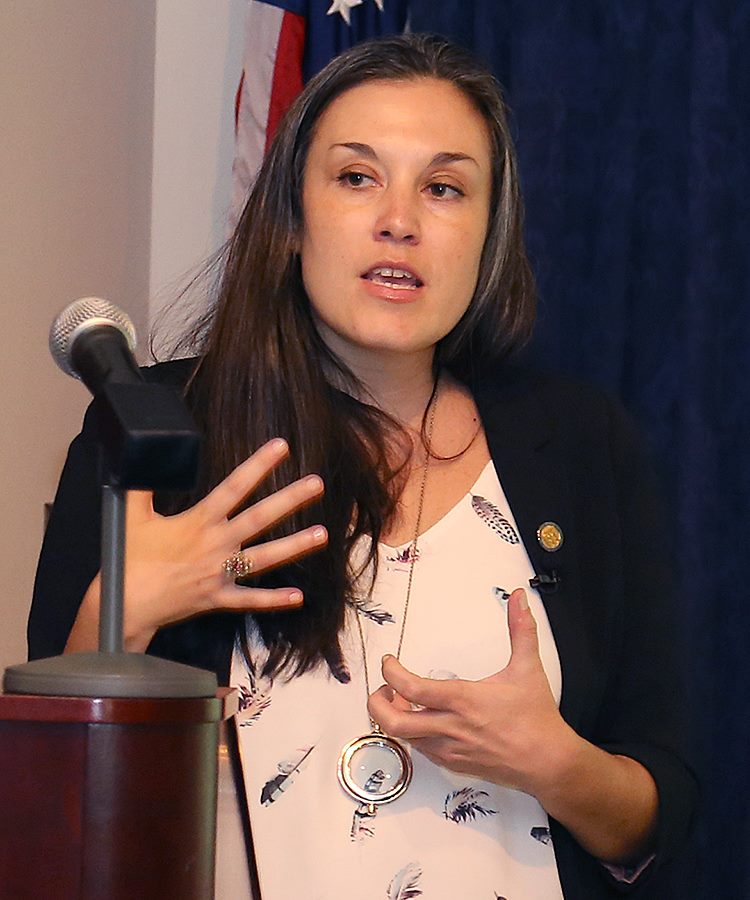Grace Davie’s discussion of the sociology of religion provides a comprehensive overview of the field. She offers insights garnered from her own eminent career within British sociology of religion and speaks directly to the ways in which the field has been shaped as much by its social location and historical movements as it has been by theoretical innovations and scholarly developments. Her overview will serve as the foundation for the Religious Studies Project’s forthcoming series of discussions covering a broad spectrum of topics related to sociological inquiry into religion. This podcast could be easily integrated into course materials for undergraduate courses as it provides a succinct description of the field’s history and attends to questions of its public worth, which I imagine could prompt lively classroom discussion and debate. In addition, Davie’s unassuming discussion of the multiple shifts the field has taken over the course of her own career should warrant consideration on the part of junior scholars in any discipline who are thinking about the larger trajectory of their careers and the ways in which we balance our scholarly interests, pedagogical ambitions, and institutional obligations. In this context, Davie wants us to take seriously the social value of and potential contributions by the sociology of religion to both policy-making and inspiring empathy for those we (along with our students and the general public) might think of as ‘other’ or foreign.
I do not have a lot to offer by way of critical comments about Davie’s history of the discipline. I agree with her assessment that more consideration is warranted of the fluid nature of the field as it flows from the social location of its various schools of thought. I too am interested in thinking about the ways that new technologies, online religions, and artificial intelligence offer innovative frameworks for thinking about religious practices—both for adherents of religious traditions and for scholars who study them. I find Davie’s assumptions concerning the category of religion to be too concrete for my own use (both in terms of how I conceptualize it as a scholar, but also in how I see religious adherents making use of it); since this topic has been covered extensively as of late on the Religious Studies Project blog, I will set it aside and instead speak to what I see as the primary intention of this podcast: to offer a comprehensive framework for moving forward by considering the past, current, and future routes available to sociologists of religion.
In a comparable reflection on his career teaching about religion in public institutions, Jonathan Z. Smith describes a conversation he had with a senior colleague at an early juncture in his career. In that conversation, his would-be mentor remarked that the study of religion would survive as long as it continued to tether itself to theological studies. Smith imagines a Purusha-like sacrifice whereby the field is somehow partitioned up and sacrificially offered in a way that serves the almighty, eternal aims of divinity education (Smith 1995). While Davie’s description of the sociology of religion—both its origins and its future—does not prescriptively suppose that the field ought to uncritically follow the beck and call of transcendent forces, a similar logic is at work both in the way she relates the history of the field within the United Kingdom and her own illustrious career at its helm. In a tone that is slightly wistful, Davie relates that the sociology of religion has shifted its allegiances from departments of sociology to religious studies (and into anthropology departments) which she sees as an indicator that sociology does not take religion seriously. In many ways, this shift she describes resonates with the shift Smith and others observe concerning the transition from theological studies to the study of religion.
My allusion to Purusha is not intended to suggest a disagreement with Davie’s assessment of the field but rather to call for a critical inquiry into the work we do under the broad banner of sociology of religion. Purusha, of course, is the primordial man of the Rig Veda whose ceremonial sacrifice generates the caste system—one of countless instances in which we see the introduction of a religious narrative to buttress political hierarchies and social inequalities. In other words, it stands as a story recounted in such a way that makes the social system it speaks to appear inevitable (cf. Martin 2016). I wonder if I detect something similar in Davie’s description of the field and its usefulness. In her analysis of the four key historical figures within the sociology of religion—Marx, Weber, Durkheim, and Simmel—one can almost detect an arbitrary division of the body, brain, heart, and feet akin to the Purusha narrative. I cannot help but think that the field’s continued reliance on these classical thinkers (with the addition of other standbys such as Berger and Luckmann, Stark and Finke, and various scholars associated with the Secularization Thesis) works to limit the possibilities for analysis to those concerns raised by such figures even in the midst of increased calls for non-Western scholarly interlocutors and more diverse research sites.
An additional parceling of roles is revealed in her treatment of the current tenure of the sociology of religion. Davie makes the important point that the field is dependent on its own social locations. While it emerged in concert with modern European thought, the industrial revolution, urbanization, and shifting patterns of human migration, the discipline is one that attends to the particularities (and at times idiosyncrasies) of its home base. In this vein, Davie almost seems to suggest that the British, Nordic, French, and American varieties of sociology of religion should be treated as separate species that exist as they do as much because of their theoretical foci as the content of religious activities therein—while not explicitly stated as such or presumably her intention, an overly defensive reading (from an American perspective) of Davie’s description of sociology of religion in the United States might conclude that she thinks Donald Trump is a direct consequence of Rational Choice Theory.
Trump is low-hanging fruit but Davie’s evocation of his role within the evangelical corpus speaks to our need for a more critical approach within the sociology of religion, specifically one that seeks to broaden our understanding of how religious adherents negotiate competing claims to their social identities. As a strategist (if we care to call him such), Trump is not employing the same tactics that brought Bush, Reagan, and even Clinton to power. He is not attempting to ‘win’ the evangelical vote based on appealing to their religious sensitivities or by speaking their language (cf. Lincoln 2003). Instead, a more interesting analysis might be undertaken that considers the ways that Trump is working to garner a conservative Protestant base that supports him despite his lack of religious fluency, moral virtue, or cultural resonance with the everyday lives of American evangelicals. In other words, evangelicals are not stupid; they know that Trump is not one of them. If he mobilizes their vote, it will reveal less about the religious beliefs of Americans or the political imagination of conservative Protestants, but rather will speak to the economic, foreign, and social policies that, at least for this election cycle, are perceived as trumping religious proclivities. As with Purusha, evangelical ‘belief in’ or ‘support for’ Trump is only interesting so far as we can locate its social consequences, many of which may prove to be unintended. In this context, the role of scholars of religion is, in part, to delve into and bring to light those instances where religious beliefs, traditions, and identities are incoherent, inconsistent, and contradictory.
Davie’s evocation of the perceived allegiances between conservative Protestantism and American political networks reminds us that the history of the sociology of religion in the United States has taken a markedly different path than its British counterpart. Whereas, as Davie notes, SOCREL has flourished in the British Sociological Association and now stands as its second largest unit, American academic societies have not always been as welcoming towards sociologists of religion, many of whom were themselves religiously-minded and fearful of the Marxist and atheist factions within the American Sociological Association (ASA). While the ASA has been in existence since 1961, it was not until 1994 that the sociology of religion section was established. Instead, a network of alternative associations were established in the mid-twentieth century which were sympathetic to Catholic and Protestant sociologists. The effects of such bifurcation has been, in many instances (although certainly not all) an emphasis on scholarship that provides a service to religion and lacks an explicit critique (Stark and Finke 2000: 15-16; cf. Blasi 2014). More recently, the Sociology of Religion group of the American Academy of Religion (founded in 2008 by Titus Hjelm, a UK-based sociologist and Ipsita Chatterjea, who was at the time a graduate student at Vanderbilt University; it is now chaired by Warren Goldstein and myself) was established as response to a perceived need for engagement with critical and analytical approaches drawn from sociology as a whole. Perhaps as a consequence of its home in the American Academy of Religion, the Sociology of Religion group has not served as a platform for Rational Choice Theory but rather has sought to carve out a space for interdisciplinary conversations devoted to empirically-grounded, theoretically-rich scholarship that employs a critical lens in its consideration of both the categories associated with religions and the means through which religious adherents represent themselves and their perceptions of the world and the understudied occasions where such concerns fall apart.
The possibilities for future directions in the sociology of religion are open, and I concur with Davie that the discipline’s future will likely be shaped as much by the tools it employs in its analysis as it is by its content. No more so perhaps than any other field of study, but hopefully with an increased awareness of the ways in which we as scholars arrange the data. Davie’s thorough outline of the field alongside the forthcoming podcasts from this series are a promising step towards its development.
References
Blasi AJ (2014). Sociology of Religion in America: A History of a Secular Fascination with Religion. Leiden and Boston: Brill Academic Publishers.
Lincoln, B (2003). Holy Terrors: Thinking about Religion after September 11. Chicago: University of Chicago Press.
Martin, C (2016). Religion as Ideology: Recycled Culture vs. World Religions. In Cotter C and Robertson D (eds) After World Religions: Reconstructing Religious Studies. New York: Routledge, pp.63-74.
Smith, JZ (1995). Afterward: Religious Studies: Whither (wither) and Why? Method and Theory in the Study of Religion 7(4): 407-414.
Stark, R and Finke R (2000). Acts of Faith: Explaining the Human Side of Religion. Berkeley: University of California Press.



